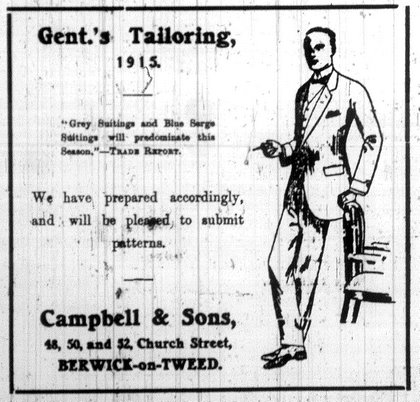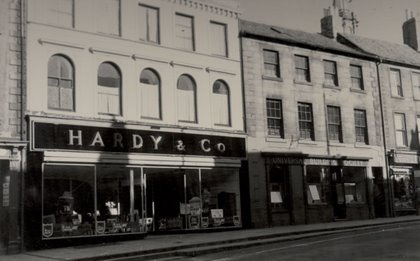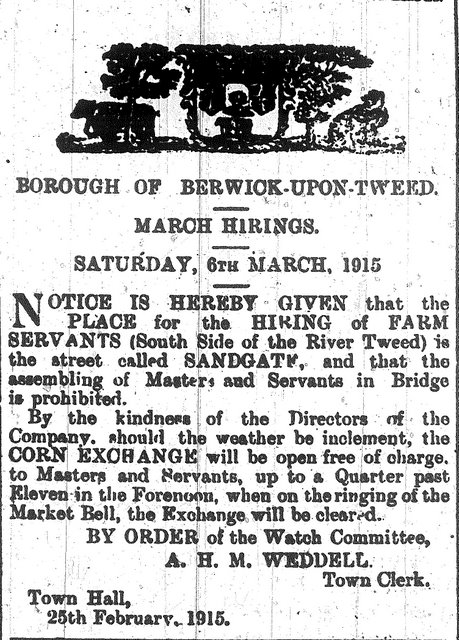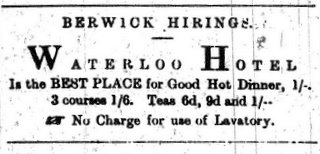26th March 1915
LETTERS TO THE EDITOR
SABBATH FOOTBALL
Sir,-One of the saddest sights was to be witnessed on Sunday last in the “Stanks” where some of our countries defenders thought so little of the Sabbath Day as to play football, aye, and that at almost a stone’s throw from the doors of several churches. To say the least, it is bad grace, and if the soldiers cannot keep the Sabbath Day holy they ought at any rate be taught to keep it respectable. I know there is a great difference of opinion on this question, but to my mind the old proverb “a Sunday well spent brings a week of content,” is a good thing to follow and I would heartily commend it to Sunday footballers, in fact to all who make the Sabbath a day of pleasure. If there was any necessity for using the Sabbath Day for football it would only be so because the soldiers were kept at drill, marching, and guarding during the whole of the other six days of the week, but this is not the case, for they appear to have plenty of leisure if one might judge by seeing the numbers who parade the streets.
Yours etc.
SABATARIAN.
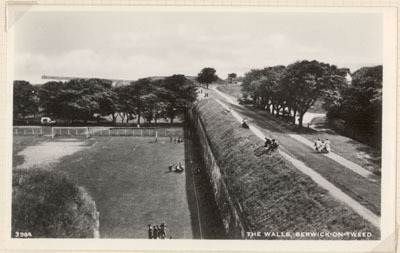
Severe Snowstorm
—
North Easterly Gale
—
Traffic Disorganised
—
Rigorous Condition for Hill Flocks
—
After a spell of spring weather there was a sharp change to conditions of an extremely wintry character. The snowfall that began in some districts on Wednesday became general over the greater part of Scotland during Thursday. In the early hours of Friday morning, and in some districts during the day also, large quantities of snow fell. With a violent north easterly gale, the powdery snow was swirled in dense, blinding clouds, and blown into deep wreaths, with the result that throughout the country there was serious disorganisation of railway traffic, while highways were blocked, and the conditions are such as to cause some anxiety to hill flocks.
BERWICK
A severe snowstorm from the east swept over Berwick and Border district on Thursday. Much damage was done to telegraph wires, which in some parts of the town were hanging down into the street. Outdoor work in the town and district was almost entirely suspended. The storm was the worst experienced in Berwick for about five years, the last to which it is comparable having occurred in a Christmas week, when for two whole days Berwick was entirely isolated. There was a good deal of dislocation of the public services. Blocks were common on most of the railways that were in any way exposed. Snow ploughs were busy all over the North British system, and within a few hours most of the blocks were removed; but on the main lines there was severe drifting…
…The most serious results of the storm, so far as communications were concerned, were with regard to telegraphs and telephones, the Post Office having no outlet for messages for several hours. Telegraph wires were blown down in many parts of the town. At Berwick Station a telegraph pole was blown down and the wires had to be cut to enable it to be lifted. Several other poles in and around the town were leaning over at dangerous angles and, generally, telegraph work was greatly interfered with.
Country postmen had a terrible task, and some were unable to complete their journeys. The motor cycle post to Ford was also cut off, but the delivery was attempted by trap. Country roads were badly blocked. On the Letham Road and the “Glaury Loaning,” for instance, snow was lying in large drifts right across the roads level with the tops of the hedges. Flock-masters on the more exposed parts of the Corporation Estate had a very anxious time, having to dig out their lambs from drifts several feet in depth. A curious result of the snowstorm was that Berwick Town Clock became snow blocked on the east side and stopped at 8:30 – it was not cleared and put right until a minute before noon. A very heavy sea was running on the Berwickshire coast, and near the mouth of the Tweed it was only with great difficulty that salmon fishing was carried on. Practically the same conditions were prevailing on Friday morning, there having been a heavy fall of snow on Thursday night and during the early hours of the morning.



